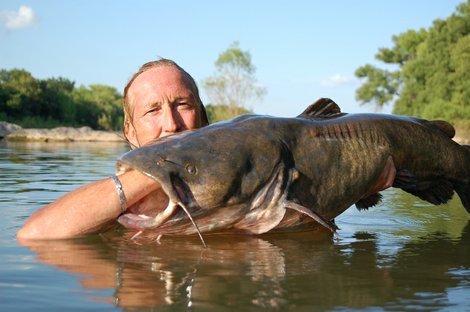Relationships, Not Ideas, Get Shows Made #NYCTVWEEk #TCS
The smarter way to stay on top of the multichannel video marketplace. Sign up below.
You are now subscribed
Your newsletter sign-up was successful

New York – First-time independent producers should spend a little less time developing their ideas and a lot more in fostering the relationships to turn those thoughts into reality, according to a panel discussion at NYC TV Week here Thursday.
“It isn’t about the idea; it’s about the execution,” said Bunim/Murray Productions president Gil Goldschein during the panel discussion, “How a Show Gets Made,” moderated by Original Productions CEO and executive producer Philip Segal.
Original Productions is a unit of reality giant Fremantle Media and produces such reality hits as Deadliest Catch, Ice Road Truckersand Ax Men.
Goldschein, whose company literally invented the reality genre as producers of The Real World and continues to lead the genre with shows like Keeping Up With the Kardashians, Project Runway and others, said that for the most part, ideas for shows are developed in-house. In order to get his attention, first-time producers have to show that they can help turn a project into reality.
That includes realizing that once an idea is accepted, the producer will usually give up control of the project, said Half Yard Productions co-owner and executive producer Abby Greensfelder. Half Yard’s shows range from Say Yes to the Dress for TLC to Hillbilly Handfishin’ (pictured) for Animal Planet.
“In order to get to the finish line, you have to relinquish control,” Greensfelder said. “That’s the price of entry.”
Aside from having a unique idea – either access to a character or a world that is unique to the television community, Greensfelder said first-time producers with unrealistic views need not apply.
The smarter way to stay on top of the multichannel video marketplace. Sign up below.
“We’re taking on a risk,” Greensfelder said, adding that if a first-time independent doesn’t see the value she or her colleagues bring to the table “We will often walk away.”
While getting a foot in the door of a producer like Bunim/Murray or Half Yard isn’t easy, it’s even harder to go direct to the networks. National Geographic Channel U.S. president of original programming & production Tim Pastore said that he won’t even look at a project unless it comes to him through a producer he knows with a proven track record.
That also includes agents. While landing an agent also will require an introduction from someone with an industry track record too, WME Entertainment partner Jason Hodes said that once an agent takes on a project, they can pitch it to multiple sources. Pastore agreed, adding that even if he likes a project, once he spends any money on it – even a small amount of a so-called sizzle reel (a 3-5 minute video that outlines the project) – it can’t be shopped to anyone else.
“If you come straight to me and I invest in your sizzle reel, you can’t bring it out,” Pastore said. “I’m going to start retaining rights.”
An agent, however, can shop the project to multiple networks, digital platforms and any other content distributor that would possibly be interested in the project.
Pastore recommended that would-be producers should search network web sites and comb show credits for production companies that produce shows that mesh with the genre they are developing to increase their chances for success.
“Pick the shows that are more in line with your programming ideas and pitch them,” Pastore said. “Go to Phil [Segal] if you have a fishing show more than a soap opera.”
